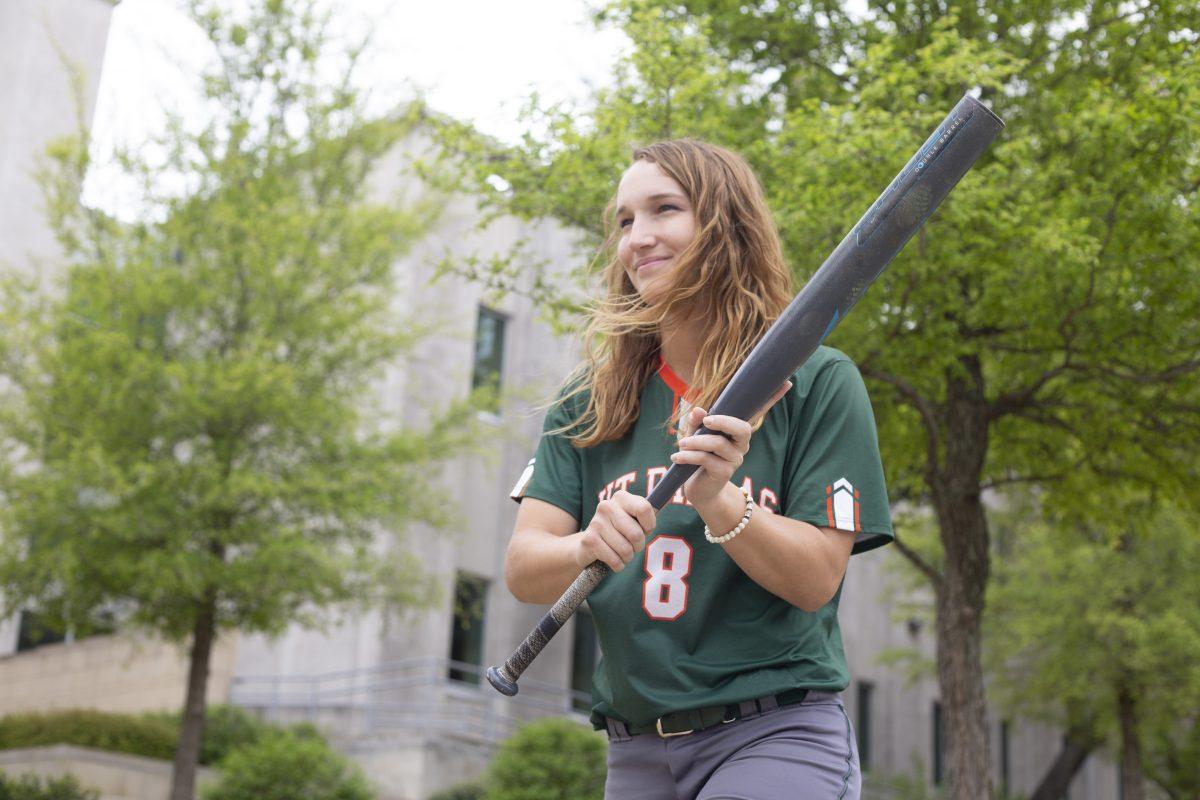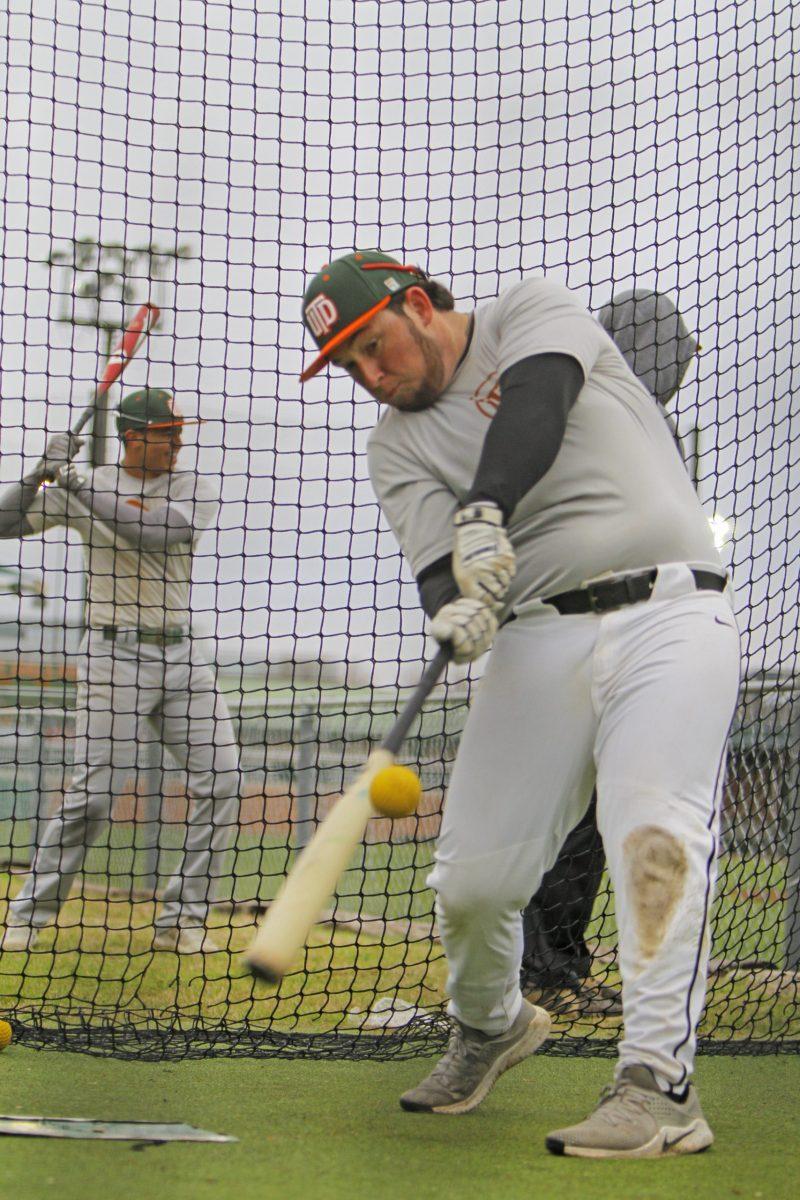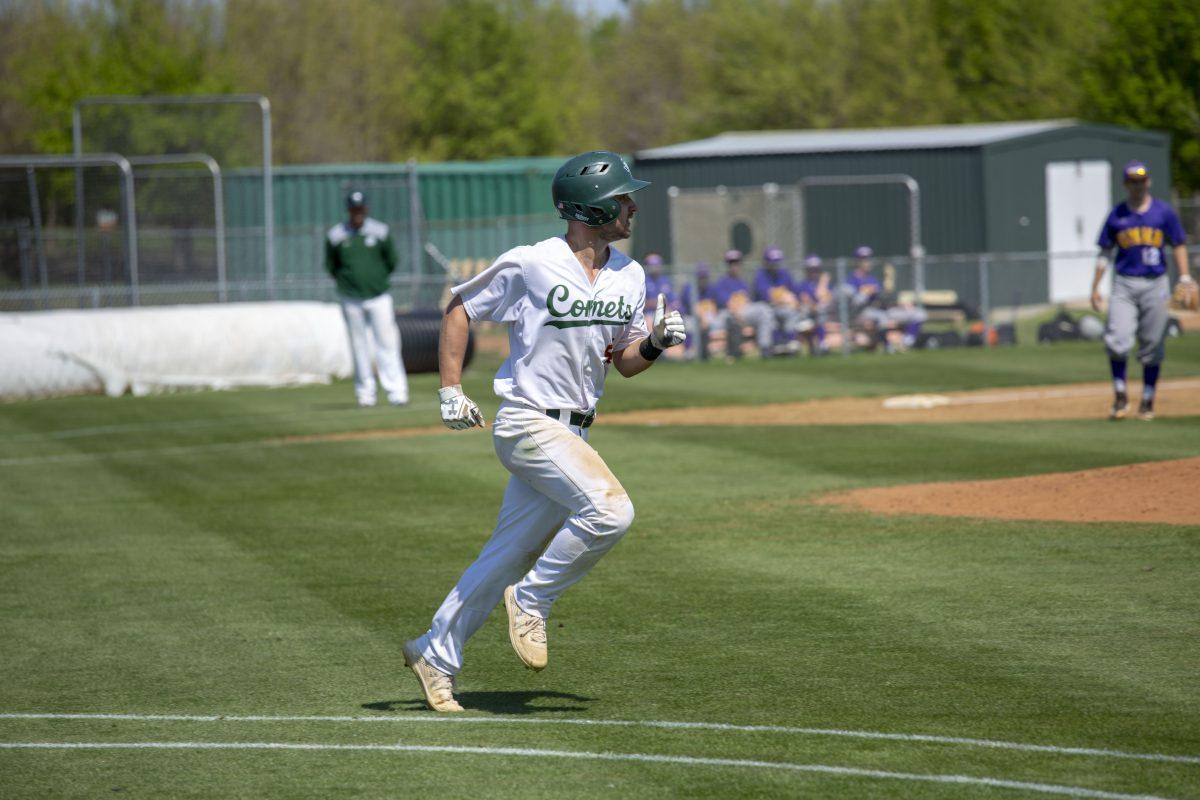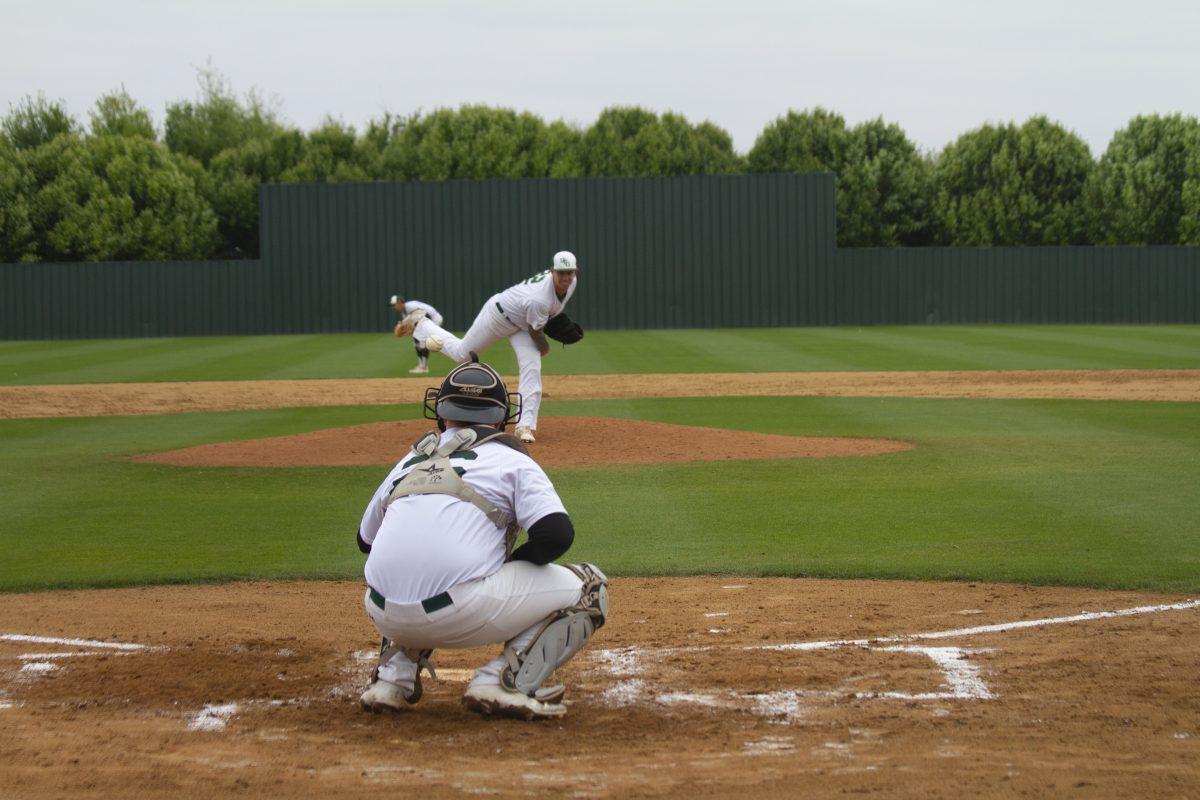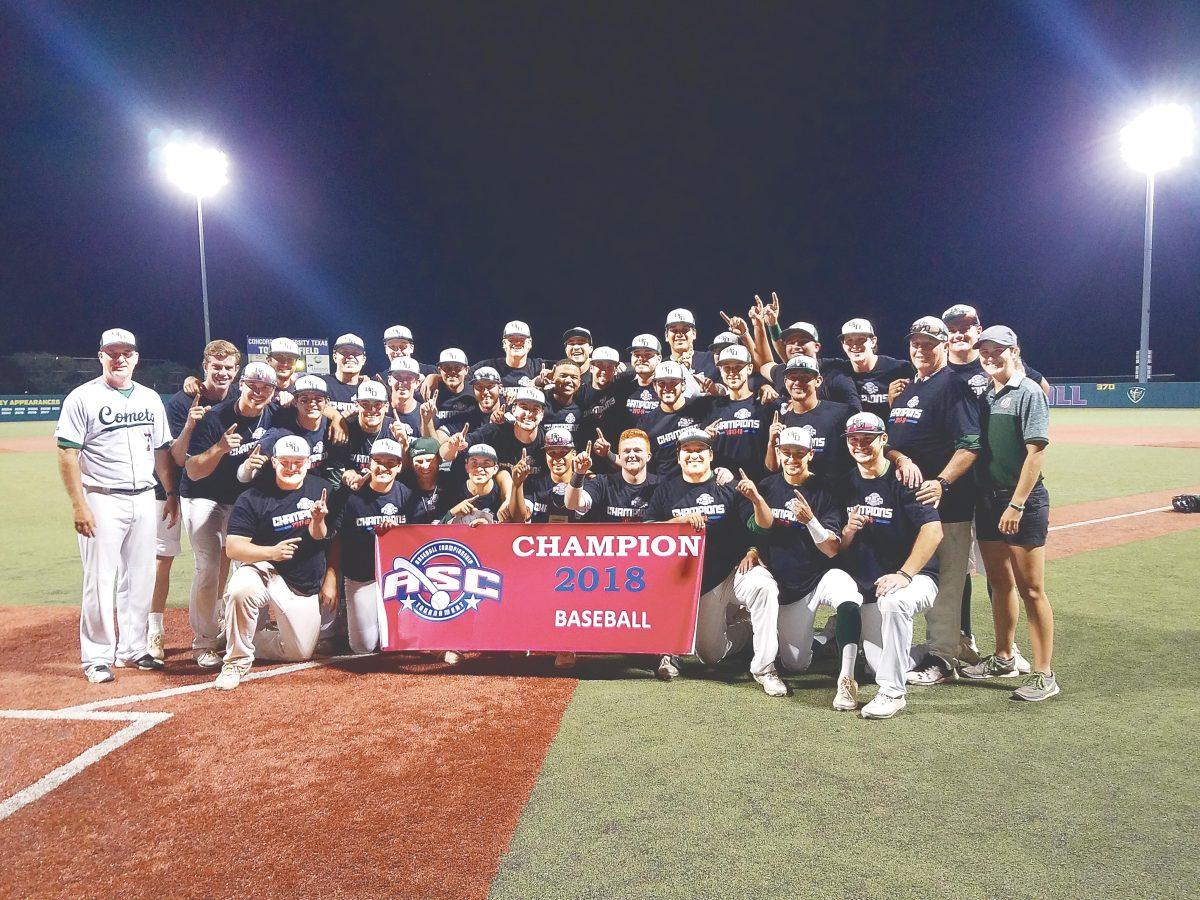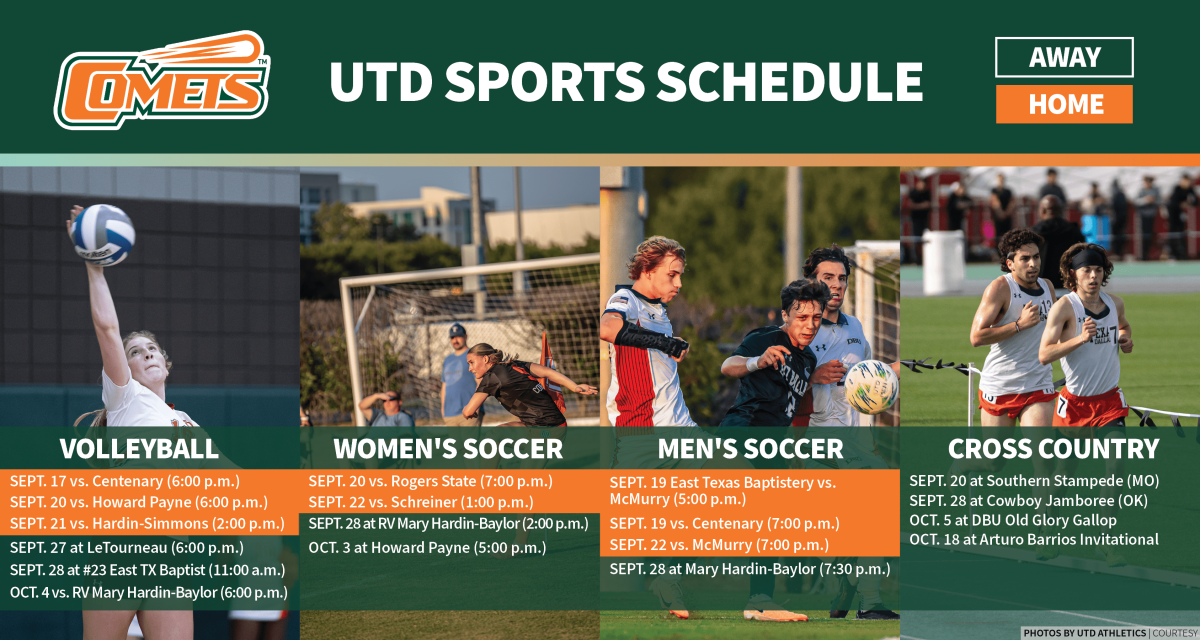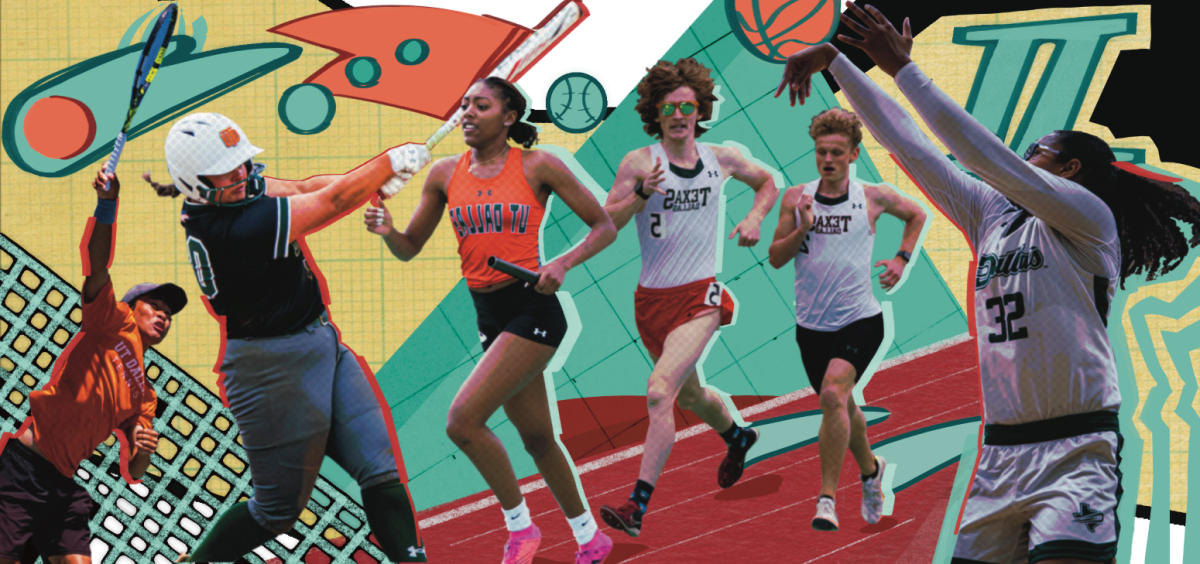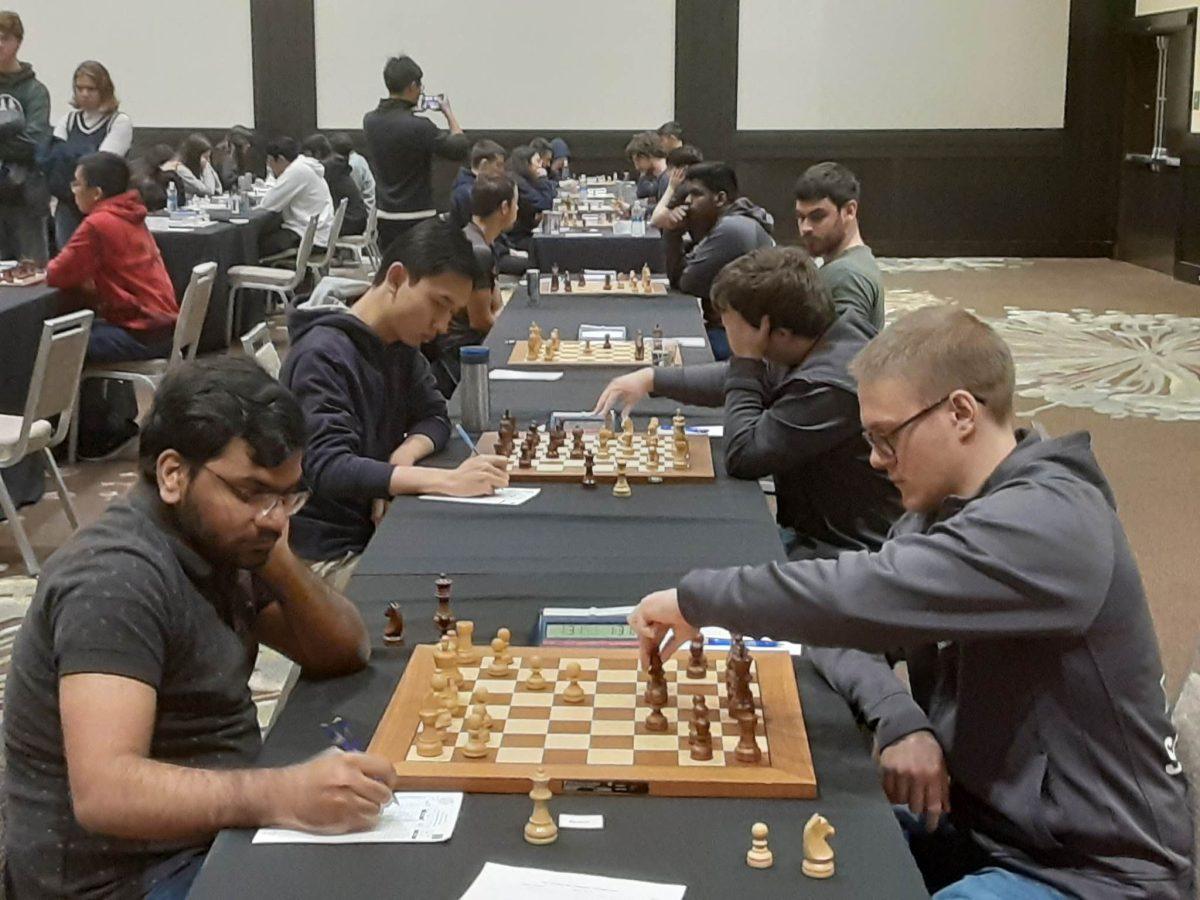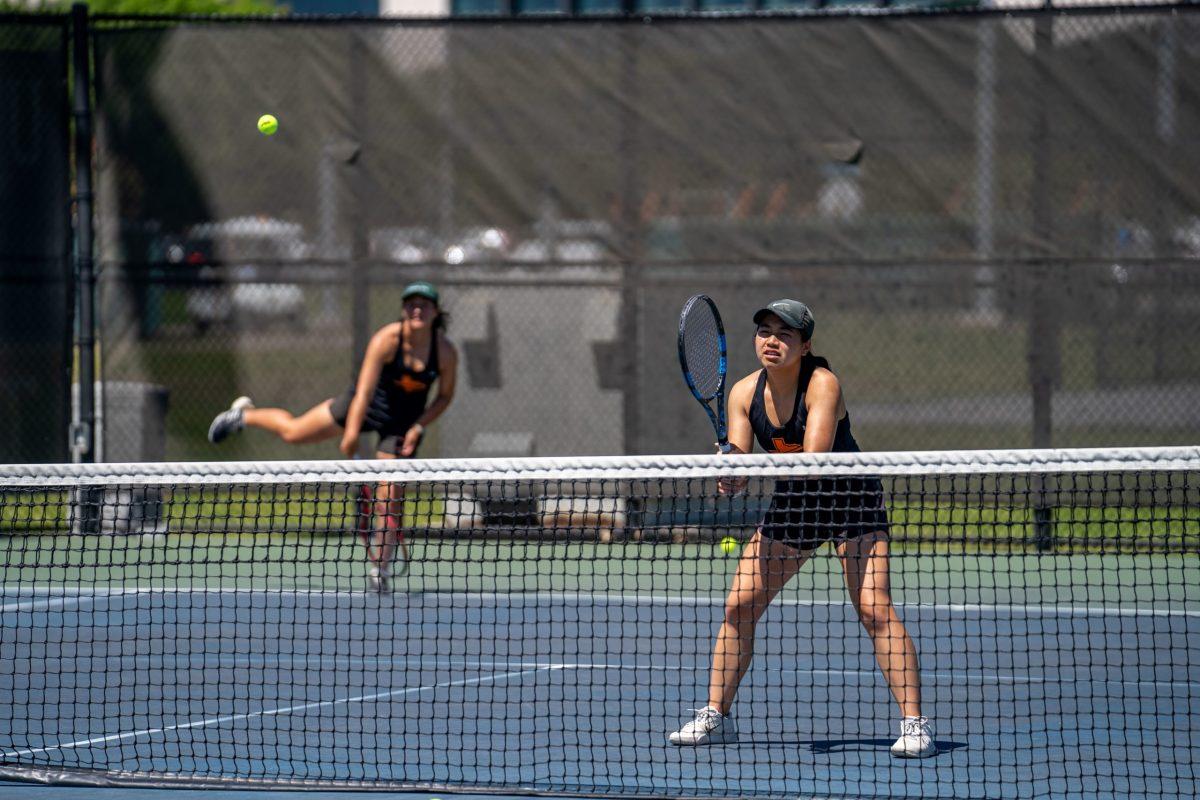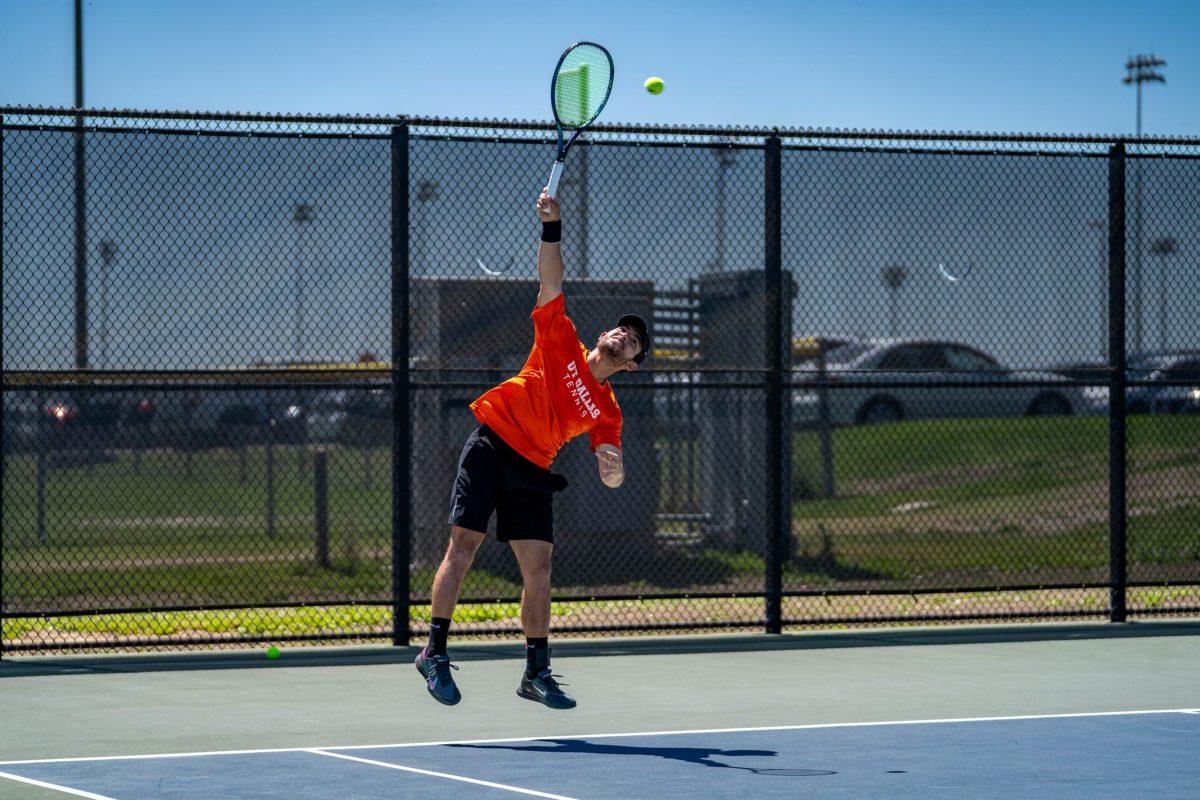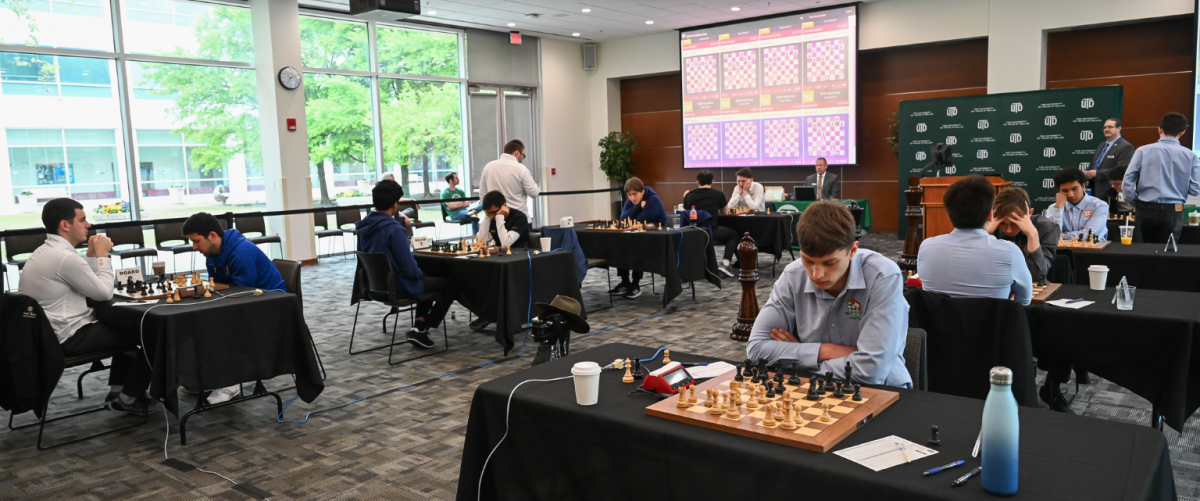It’s 6 p.m. and UTD’s softball team is running one last set of laps before the weekend.
As her teammates round the field, Melissa Livermore’s cleat taps home base. For a moment, she stands there alone, eyes cast out somewhere beyond the outfield. Then the spell is broken. Livermore extends a hand for a high five as the first of her teammates finishes up behind her.
Livermore, a healthcare studies senior, has played outfielder on the softball team throughout all four years at UTD. Last week, she was named the American Southwest Conference’s hitter of the week. She’s a three-time All-American winner and recently broke the Division III record for the highest number of stolen bases throughout her career.
Head coach James Kling said that stealing bases is one of the most exciting parts of their game. There’s a lot of strategy involved, with an almost telekinetic communication between player and coach.
“Bunt, get on base, steal second,” Livermore said. “That’s my whole role, basically.”
Bunting refers to a technique where a batting player will hit the ball low, into the dirt, rather than aim high and far into the outfield. It’s common in college softball, as it allows a batter to strategically “place” the ball in the infield. If done properly, it opens a window so a quicker player, such as Livermore, can attempt a steal.
“That’s the difference between softball and baseball. In baseball, you don’t see a lot of bunting,” Kling said. “But in softball, when you’ve got a person that’s quick like Mel, you use that short game.”
In NCAA softball, a player can’t attempt a steal until the pitcher throws the ball. Once that happens, Livermore is essentially racing against the ball. In college softball, a talented pitcher can throw at speeds upwards of 60 miles per hour, Livermore said.
Kling said that before he even interviewed for the head coach position, he had heard about Livermore’s explosive speed and talent for stealing bases.
“Speed, you know, you can’t teach,” Kling said. “From an early age, coaches should see that and use it, and it’ll make a huge difference in a game.”
Livermore said she first picked up a bat at the age of four, playing tee-ball. She’s been playing ever since. When there weren’t any softball teams, she played baseball instead. But it wasn’t until high school that her coach took note of her penchant for speed.
“I was really small at the time. I hadn’t hit my growth spurt, and (my coach) was like, ‘Mel, you’re too fast to not be on the left side (of the batter’s box),’” Livermore said. “Since then, it’s like, get on base and steal.”
Livermore said when she’s stealing a base, every second counts. She said one of her greatest challenges was learning how to optimize those first few steps off the plate. By her last recollection, she said she can get from first to second base in under three seconds.
“It’s kind of an adrenaline rush,” Livermore said. “Coach Kling, he’ll give me a sign and you’ll get all excited to go, and then you take those first hard steps off.”
And the adrenaline is infectious.
“When Mel is our leadoff, it’s a catalyst for the team,” Kling said. “It gets that enthusiasm; it gets that momentum going for us.”
But Livermore’s energy and amiability don’t go away when she’s off the field.
“I like to be the mom,” she said. “We’re like a big family.”
The team often spend time together outside of practice. They go to Smoothie King together, study together and hang out afterwards. Livermore said she’s even formed a small Bible study group with a few other teammates.
“Just living on campus together, you know, (my teammates) are some of my closest friends,” Livermore said. “It’s the little things we do together, not the awards and accolades.”
Livermore will graduate this May. This week, she’s gearing up to take the exam for EMT certification. She’ll work as an EMT while she applies for sports medicine and physician assistant programs.
Livermore said even though so much of her life revolves around softball, she’s always loved school, especially when she can use it to connect different aspects of her life, such as her knowledge of anatomy.
“The human body is just fascinating,” Livermore said. “With Anatomy and Physiology I, I really enjoyed the muscles and bones, which is the huge one, for most people, that they didn’t like.”
Livermore started out in the pre-med track. During her healthcare studies courses, she found out about physician assistant programs, which she decided were a better fit, she said.
“I think being a PA will help me to better educate patients just on the day-to-day things,” Livermore said. “It’ll also be a better work-life balance for me.”
Livermore said she’s no stranger to juggling different responsibilities. For most of her life, she’s balanced softball with work, school and relationships, she said.
It hasn’t always been easy, Livermore said. For many college athletes, balancing school and their sport can be difficult, and sometimes, people burn out. She said doesn’t judge them — junior year was particularly tough for her, with a heavy course load and a transition between coaches.
“Google Calendar is my friend,” she said. “But a huge part of it was learning to say no (to events) and … that it’s important to take time for yourself.”
Livermore said practice has become its own sort of release for her, a time when she can just let go of all the stresses that have built up over a day of classes.
She said while academics are important to her, she’s looking forward to a bit of a break from classes between graduation and professional school.
Livermore said she got a few invitations to try out for a few non-career teams after graduation but turned them down. She always knew that that her time in the sport was finite, that graduation from UTD, a Division III school, was going to look different than if she had played on a Division I team.
“Everyone dreams of it, you know, playing Division I,” Livermore said.
She said she ultimately picked UTD because it seemed like a good balance — she was able to secure a scholarship, it was close to home and it had a strong reputation for academics. And, she added, it had a softball team.
“I love UTD,” Livermore said. “I’ve found my place here.”
Livermore said she’s not quite sure what exactly her future holds, but she’s confident she’ll always find a way to be a part of the softball community here in Texas.
“When you don’t have classes or practice together anymore, you just have to make more (of an) effort to see each other,” Livermore said. “Whatever happens, I know we’re going to be OK.”

